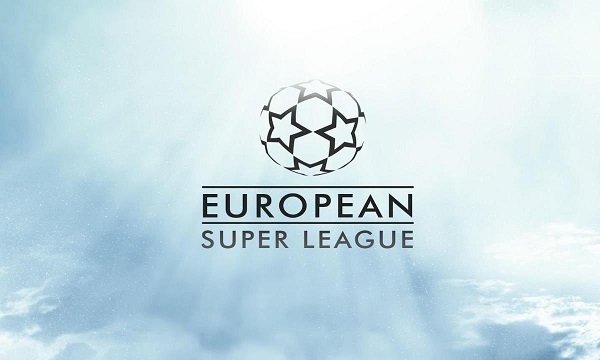The European Super League backers have revealed today that they want to launch a new version of the project that crashed two years ago: a multi-division competition of 60 to 80 teams with no permanent members, and a minimum of 14 games per club, per season.
The announcement was made in various European newspapers by A22, the Madrid-based sister company of the Super League (ESL), and timed to coincide with a new push from the three remaining rebels Real Madrid, Barcelona and Juventus to continue their battle with Uefa.
A22 claim that the new project is a result of detailed conversations with clubs around Europe on the financial problems facing them. For the past few months A22 and the ESL have focused their attacks on the wealth of the Premier League, its dominance of the transfer market and the effect that has on other European leagues with less lucrative television deals.
There are no details yet on how the original 60 to 80 teams would be constituted or how they would drop out of the proposed competition to make way for new clubs. The original ESL, in April 2021, was pilloried for offering permanent membership to its founding clubs of which six were from the Premier League: the two Manchester clubs, Liverpool, Chelsea, Arsenal and Tottenham Hotspur.
READ ALSO: European Super League: Uefa ends legal fight against Barcelona, Juventus & Real Madrid
The format of the proposed new Super League has been kept a secret by Real, Barcelona and Juventus, but even now there are still questions about how it might work – were it ever given the legal room to operate. A22, as well as its major backers like Real president Florentino Perez, has claimed in the past that there would be greater solidarity payments for clubs who do not participate in European competitions.
Javier Tebas, the president of La Liga, was among the first to respond to today's announcement. He tweeted: "The Super League is the wolf, who today disguises himself as a granny to try to fool European football, but his nose and his teeth are very big. Four divisions in Europe? Of course the [top division] for them [the founding clubs], as in the 2019 plan. Governance of the clubs? Of course only from the big ones."
La Superliga es el lobo, que hoy se disfraza de abuelita para intentar engañar al fútbol europeo, pero SU nariz y SUS dientes son muy grandes, ¿cuatro divisiones en europa? Claro la primera para ellos, como en la reforma de 2019.¿Gobierno de los clubes? Claro solo de los grandes pic.twitter.com/y0IQmLzS6W
— Javier Tebas Medrano (@Tebasjavier) February 9, 2023
'Clubs bear the entrepreneurial risk in football'
Writing in the German newspaper Welt, the chief executive of A22, Bernd Reichart, continued the attack on Uefa by claiming that clubs have no say in the running of its competitions. He said: “It is the clubs that bear the entrepreneurial risk in football. But when it comes to important decisions, they are too often forced to stand idly by from the sidelines as the sporting and financial foundations run under their hands. Our talks have also made it clear that it is often impossible for clubs to raise their voices publicly against a system that uses the threat of sanctions to prevent opposition.”
Reichart made other claims about supporting the women’s game, supporting domestic competitions, the health of the players and financial sustainability rules and fan experience. There are pledges to pursue all these issues but no details on how much revenue will be generated to do so or who might run the ESL. In its first iteration in 2021, power was concentrated in the hands of Perez; Andrea Agnelli, the former Juventus chairman; and Manchester United co-owner Joel Glazer.
It is the most powerful clubs outside the rebel three who have helped shape the new format for Uefa's Champions League post 2024 – the so-called “Swiss model” which will have 36 teams in a single division playing ten group stage games instead of the current six. As for the wealth of those competitions, Uefa and the powerful European Club Association which represents clubs across Europe co-own a joint venture that controls all the revenue from the Champion League, Europa League and Europa Conference League.
The original European Super League was dealt a major blow before Christmas in its long-running legal case with Uefa in the European Court of Justice in Luxembourg. The advocate-general Athanasios Rantos’ advice to the court was heavily in favour of the Uefa monopoly.
The advocate-general’s advice is not binding to the ECJ judges but in most cases it is followed. He found that EU competition law was compatible with the restrictions that Uefa and Fifa’s power asserted over football and “proportionate” for achieving Uefa's “legitimate objectives” in line with the EU policy on sport.
Source: telegraph.co.uk





